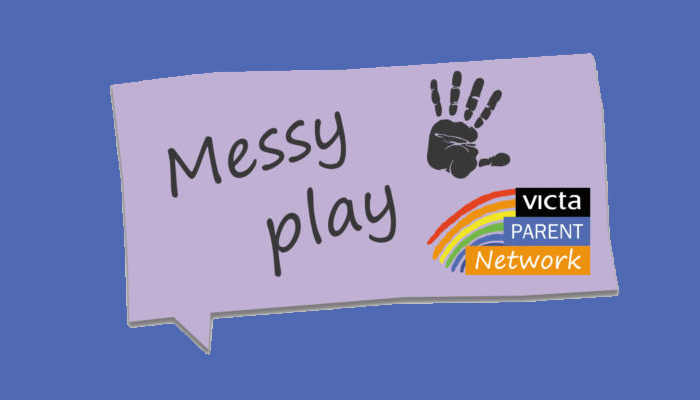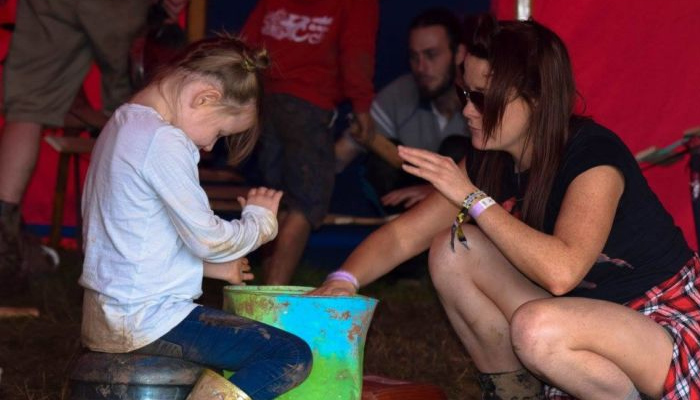Who else can help
You don’t need to navigate this journey on your own. These organisations can offer additional care, advice and support networks to help you become the best parent advocate for your VI child.
You don’t need to navigate this journey on your own. These organisations can offer additional care, advice and support networks to help you become the best parent advocate for your VI child.
The VICTA Parent Network
www.victaparents.org.uk/connect
VICTA offers a family support service which is delivered by parents for parents. The Parent Network aims to provide localised groups and an online forum for parents to meet, chat, share experiences or ask questions. If you are unable to find the information you require on the Parent Portal, then please utilise The Parent Network Facebook group. Parent knowledge is very powerful and practical, and the Parent Network is in place so that you can source this directly. The Parent Network also gives parents the opportunity to arrange family or parent only events and groups in their area. If you’re interested in finding out more about this, please get in touch. Click here to visit the Parent Network Facebook page.
Guide Dogs Family Support Team
www.guidedogs.org.uk/services-we-provide/family-support
Guide Dogs Family Support team gives the families of children with a vision impairment practical and emotional support, advice and information. They can also advise and work with other professionals and organisations. The Family Support Team offer independent advice on claiming benefits or make contact with agencies and organisations on the family’s behalf. They usually operate over the telephone, although they may provide one-to-one support in person in some cases.
Look
Look provides advice and guidance to parents, guardians and carers of children and young adults with a vision impairment. The Look Helpline provides advice, emotional support and information for young people and their families. Look can also support a young person directly through their mentoring scheme. Visit the website or call 07464 351958.
RNIB Sight Loss Counselling
www.rnib.org.uk/services-we-offer-advice-and-support-services/sight-loss-counselling-team
The RNIB Sight Loss Counselling Team provide support for anyone affected by sight loss, including sighted parents of children and young people with a visual impairment.
You can self-refer for counselling and emotional support through the website above. You can also call the RNIB Helpline number, 0303 123 9999, which will give you the opportunity to speak to a Sight Loss Adviser who can discuss a full-range of support available. The advice service is open from 8am to 8pm Monday to Friday and 9am to 1pm on Saturdays.
RSBC Family Support Service
www.rsbc.org.uk/advice/what-we-do/family-support-service
RSBC are on hand from the moment you hear the news about your child’s sight. The team help you to understand the condition and prognosis, adapt to its challenges, and build confidence. Their aim is that your family can access every opportunity to ensure you have fulfilled and happy lives. The service is open to families with blind and partially sighted children up to the age of 25.
Retina UK Helpline
retinauk.org.uk/information-support/retina-uk-helpline/
Retina UK support people affected by inherited, progressive sight loss. Their Helpline is manned entirely by volunteers, who either live with, or have close family members, with inherited sight loss. Callers can ask condition-specific questions and seek information about benefits, employment and education. It is completely confidential and gives the opportunity to discuss feelings or concerns with an experienced volunteer. The number to call is 0845 123 2354.
Sight Advice FAQ
The Sight Advice FAQ is a collaboration by RNIB, Guide Dogs, VICTA, Visionary, Fight for Sight, Vision UK and the Macular Society. The FAQ answers questions about living with sight loss, eye health or being newly diagnosed with a sight condition. This includes those who are supporting people through their sight loss journey, including parents, partners, carers and friends.
Carers UK
www.carersuk.org/help-and-advice
Although not specifically aimed at supporting the families of blind and partially sighted children, this organisation can help you find more support. The website is full of useful information covering practical, financial, health, work and careers advice. It also covers supporting you to take a break, and mental health and emotional well-being advice.
Contact a Family
contact.org.uk/advice-and-support/local-support/parent-support-groups
Parent support groups are a great way to meet other parents for practical and emotional support. Most support groups are set up and run by parents and carers of children with additional needs. Some professionals and organisations, particularly children centres, run their own groups. You can use this website to find national and local support groups for parents of children with a range of disabilities.
KIDS
www.kids.org.uk/parent-family-support
KIDS is a national charity, founded 49 years ago, providing a wide range of support services to disabled children, young people and their families. They support children with any disability from birth to 25 years of age. KIDS have services that provide general parent and family support as well as key working, sleep projects, parent forums and befriending services. More information can be found on their website.
SIBS
www.youngsibs.org.uk and www.sibs.org.uk
Sibs supports children who have a disabled brother or sister. They provide information, training and support for siblings of all ages. For siblings aged 7 – 17, there is a specific service called Young Sibs, which includes an online forum for siblings to share experiences with other children who have a disabled sibling.
Add your details
If your organisation is not yet included on our list please get in touch at online@victa.org.uk and we will be happy to add you to our






